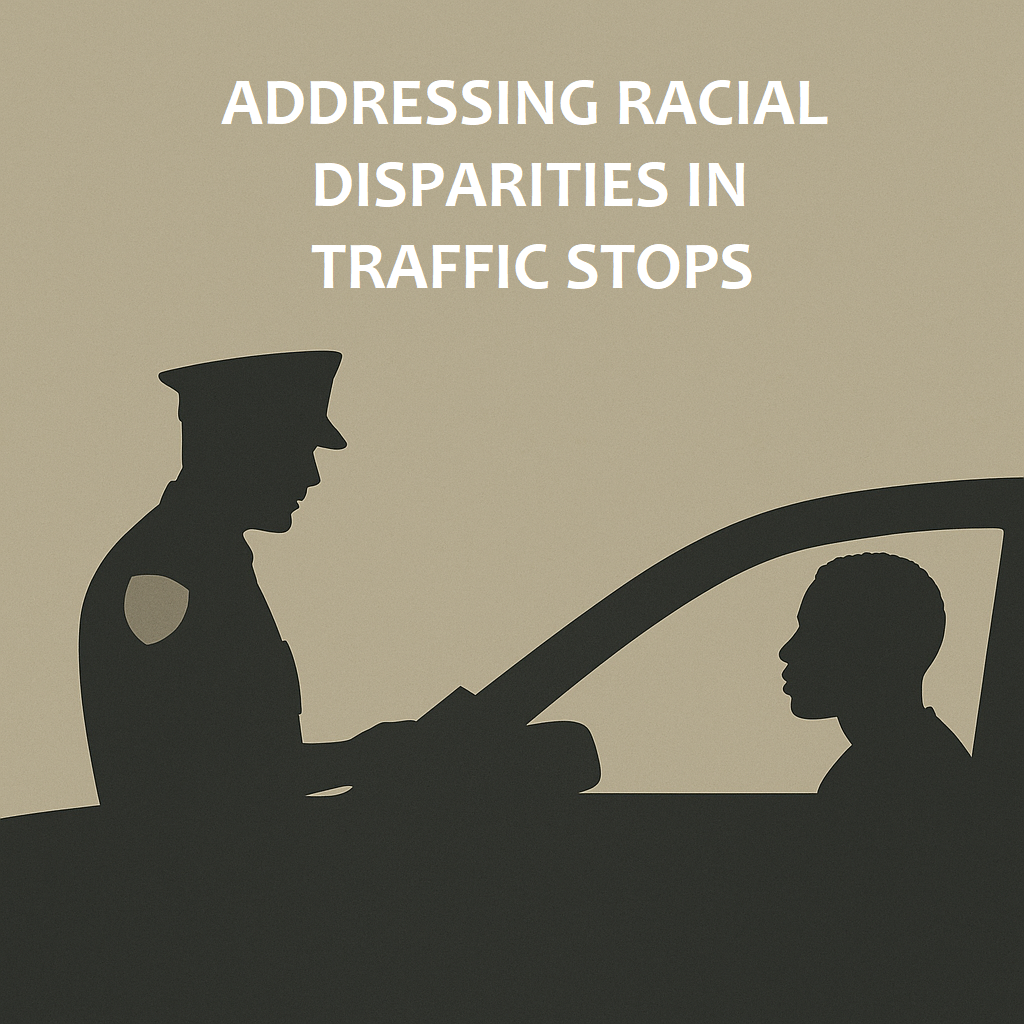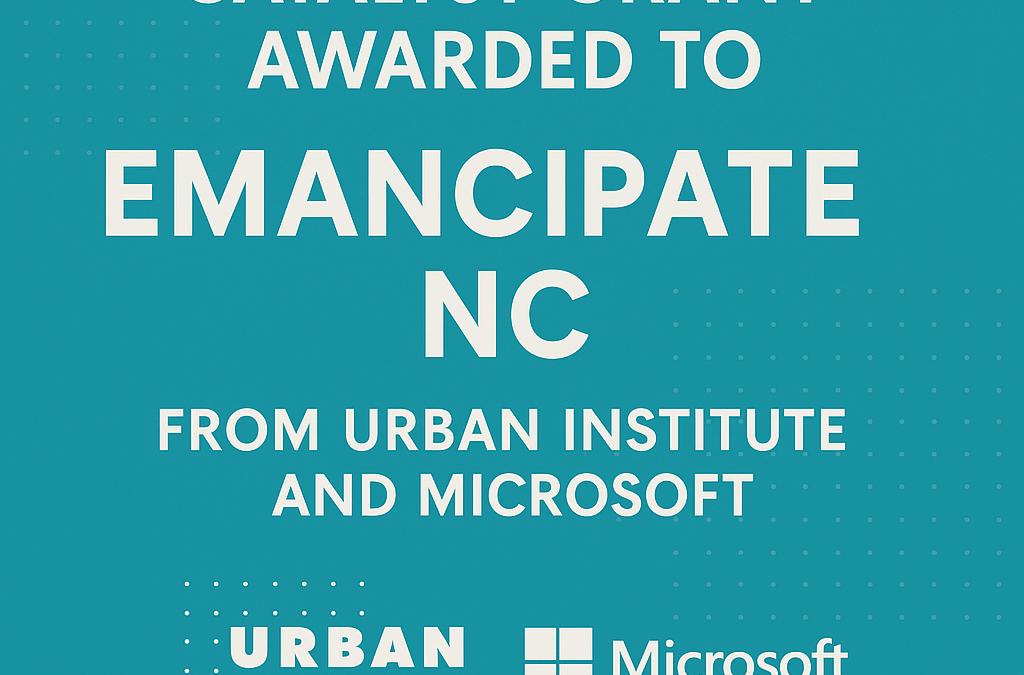We’re proud to share that Emancipate NC has been selected as a recipient of a Catalyst Grant from the Urban Institute, in partnership with the Microsoft Justice Reform Initiative.
The Catalyst Grant Program supports nonprofits that are working to advance racial equity and reform within the criminal legal system—particularly at its front end, where bias and disparities often take root. Emancipate NC is among a select group of organizations using data and technology to challenge systemic racism and reimagine justice.
As the Urban Institute explains:
“Issues around inequality and the criminal legal system pose fundamental societal questions about bias, fairness, and equity. Racism and racial biases are embedded in the criminal legal system and lead to disproportionate harm to communities of color, particularly the Black community.”
This grant will help Emancipate NC continue to push for meaningful change, using data-driven advocacy to expose injustice and build community-based alternatives to incarceration.
🔗 Learn more about the Catalyst Grant and our fellow grantees→

From Urban.org:“Emancipate NC: Expanding Access to Data to Advance Reform in Traffic Stop Policy and Practice”Raleigh and Charlotte, NC Research on traffic stops in North Carolina revealed extensive racial disparities in traffic stops and searches. While most traffic stops don’t result in arrests, the interactions can have negative psychological impacts on those stopped—particularly Black people, who are subject to disproportionate rates of police misconduct, including use of force. In Wake County (where Raleigh, one of North Carolina’s most populous cities, is located) the population is 19 percent Black and 10 percent Hispanic, but Black drivers make up 36 percent of stops and 46 percent of searches while Hispanic drivers make up 13 percent of stops and 15 percent of searches. In response to these disparities and disparities in arrests, Emancipate NC, a nonprofit working toward dismantling structural racism and mass incarceration in North Carolina and shifting the narrative on racialized mass incarceration through community education and mobilization, has advocated for ending regulatory traffic stops (PDF) (stops for low-level infractions that do not threaten public safety) throughout the state. With Catalyst grant funding, Emancipate NC aims to create profiles of law enforcement officers to help North Carolina residents and their lawyers better access information to inform their defense of tickets and charges in court. It will create these profiles by linking information across privately funded websites like Open Data Policing and NC CopWatch (a site created by 2021 Catalyst grantee Forward Justice) that publish public-record information about each North Carolina traffic stop with the state’s eCourts system, which publishes information about criminal charges, including the demographics of the people charged and the names of the charging officers. Emancipate NC will share these profiles with defense attorneys looking for patterns of equal-protection violations by individual police officers. This work will make it easier to identify officers’ enforcement histories and the racial demographics of people they stop and search. The project is intended to reduce the time public defenders have to spend obtaining information needed to prove equal-protection violations in court. Emancipate NC will also use grant funds to develop demographic metrics for individual police districts in North Carolina’s major cities that are used for benchmarking in litigating selective-enforcement claims. Its attorneys will host trainings for criminal defense attorneys in Charlotte and Raleigh on how to use this new data system in defense cases where racially selective enforcement is suspected. Emancipate NC will also use collected traffic stop records to inform advocacy directed toward police chiefs and other decisionmakers for policy and practice changes that proactively identify and disrupt patterns of racial profiling in policing that violate equal protection and lead to racially disparate outcomes.
